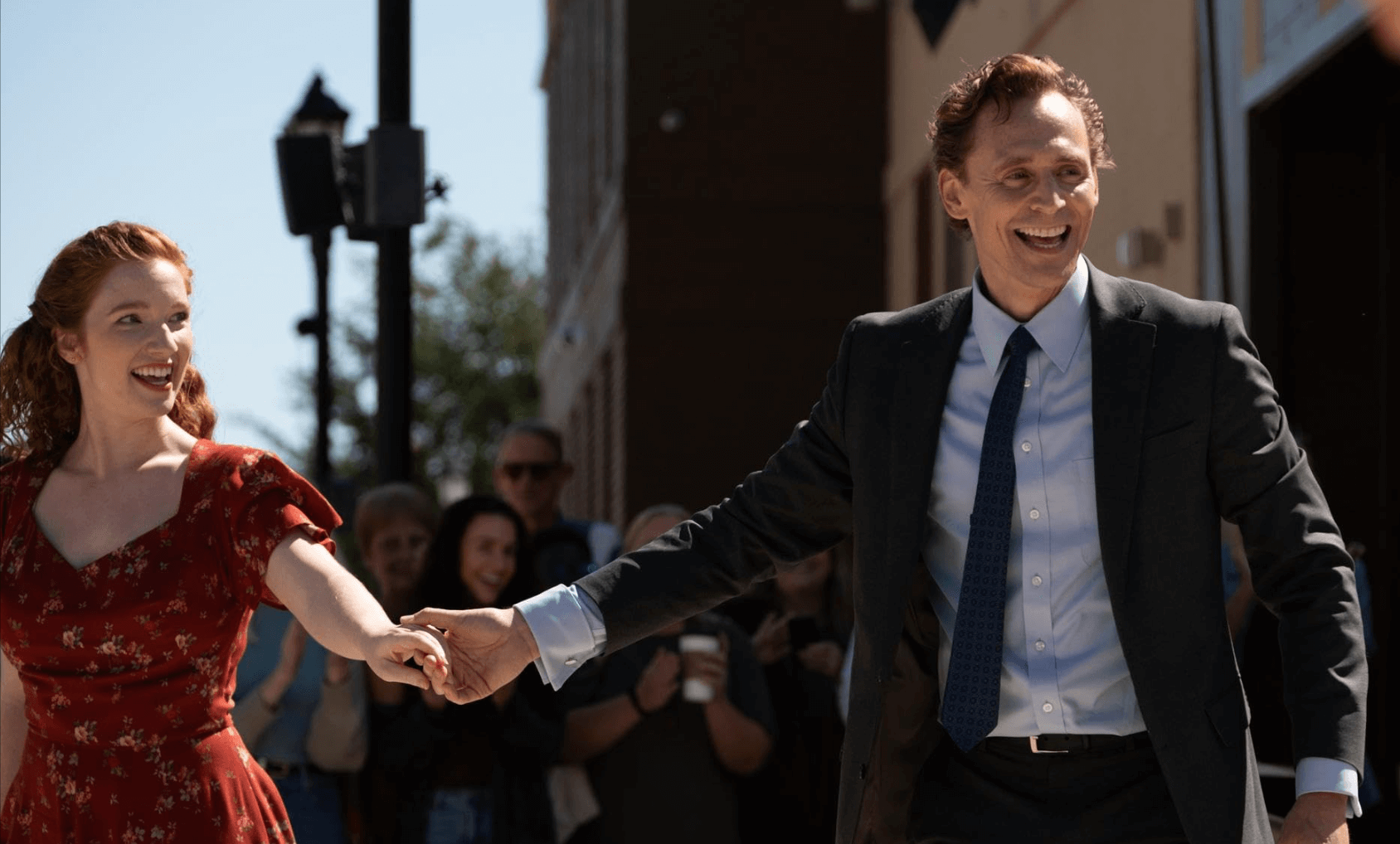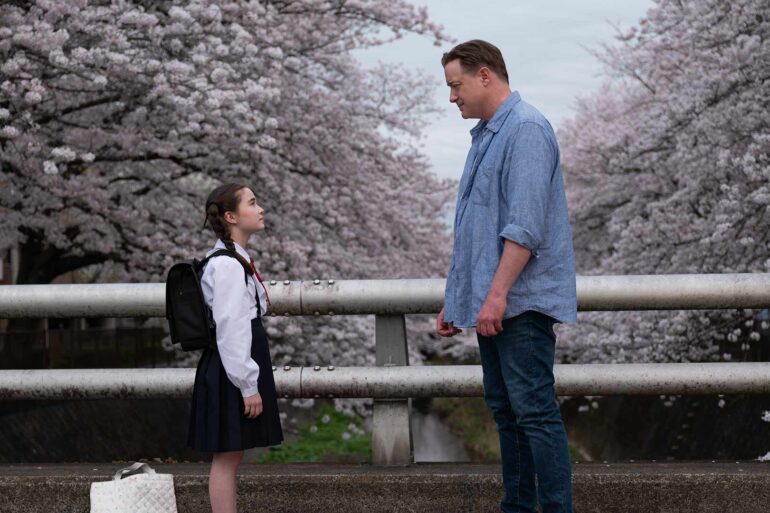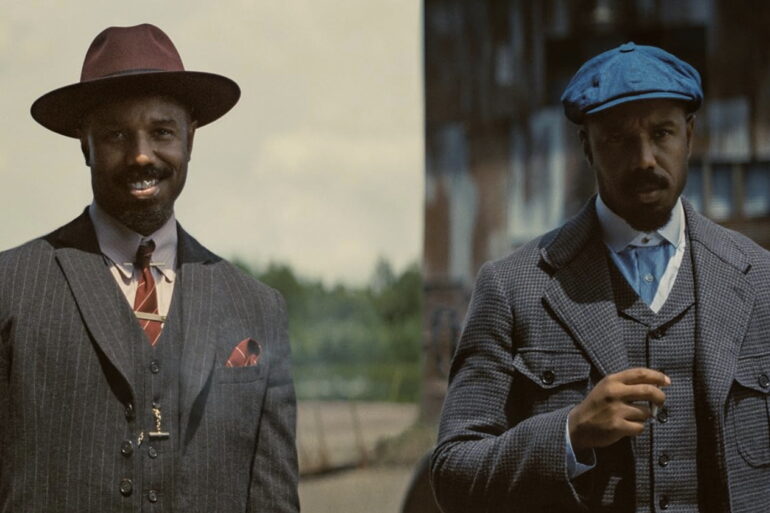The backward flow of the movie forces us to value moments we might otherwise dismiss. And in that, it delivers something rare: not horror, not comfort, but clarity.
Mike Flanagan has never been afraid of death. From The Haunting of Hill House to Midnight Mass, his work circles the abyss, finding terror in what we lose and the meaning in what remains. But with The Life of Chuck, his latest adaptation of a short story from Stephen King, Flanagan strips the supernatural down to its bones. There are no vampires, no ghouls, no phantoms. Instead, he confronts the most ordinary, most terrifying specter of all: the inevitability of endings.
A life told backwards
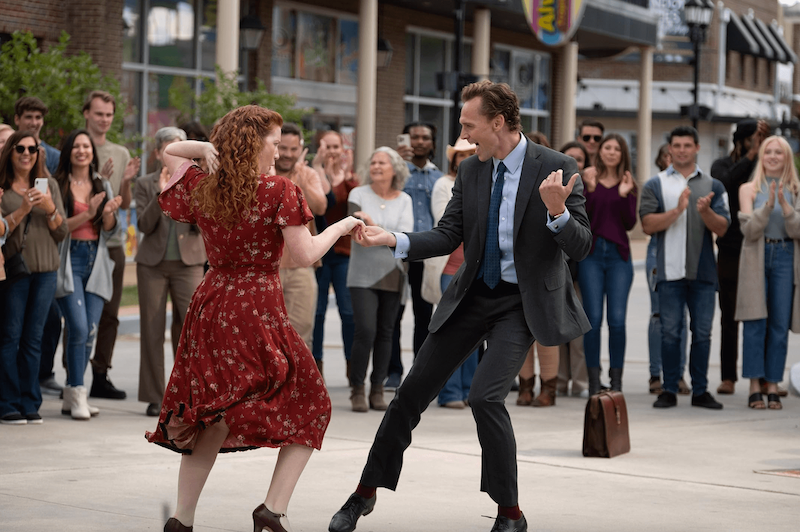


The movie begins with silence. Not the gentle kind, but the end-of-the-world kind: empty highways, collapsing economies, the last sparks of electricity flickering out. On screens across a dying planet, a bizarre farewell message glows: “39 Years. Thanks for everything, Chuck.” No one knows who Chuck is. Yet somehow, his life seems to mark the clock for the rest of humanity.
From that apocalyptic canvas, the film rewinds. Cities fall away. Nightmares shrink into neighborhoods. The lens tightens, pulling us back from extinction toward something smaller, quieter, infinitely more intimate: the story of Charles Krants. By the time the film arrives at his childhood where a young Chuck twirls in his living room, dizzy with the joy of simply existing—we understand the trick. Life isn’t measured by its end. It’s measured by the moments that refuse to fade.
This reverse structure shouldn’t work. It is at first disorienting, even alienating. But that’s the point. You walk backwards into Chuck’s life with the weight of his absence already pressing on your chest. When the joy comes, it’s sharper. It stings.
Related story: Jericho Rosales steps into power as Manuel L. Quezon in TBA Studios’ third Bayaniverse film
Related story: REVIEW: Zach Cregger turns horror into a ‘Weapon’ of its own
Related story: ‘Materialists’: Love, money, and the messy choices in between
Tom Hiddleston’s quiet fire
If the structure is the film’s skeleton, Tom Hiddleston is its beating heart. His Chuck isn’t mythic or monumental—he’s heartbreakingly ordinary. That’s the genius of the performance. Hiddleston doesn’t dazzle with grand speeches or emotional fireworks. He disarms with glances, small sighs, the way his eyes light up at music or dim at bad news.
He makes a man’s inner life feel as important as the fate of the universe. And in Flanagan’s hands, it is. Chuck matters not because he’s extraordinary, but because he’s not.
Mark Hamill, in a supporting role, gives the film its ballast. He embodies the mentors, father figures, and shadows who shape us. His presence radiates both weight and warmth, an anchor in the film that keeps slipping between metaphysical wonder and quiet domesticity.
Flanagan’s cinematic elegy
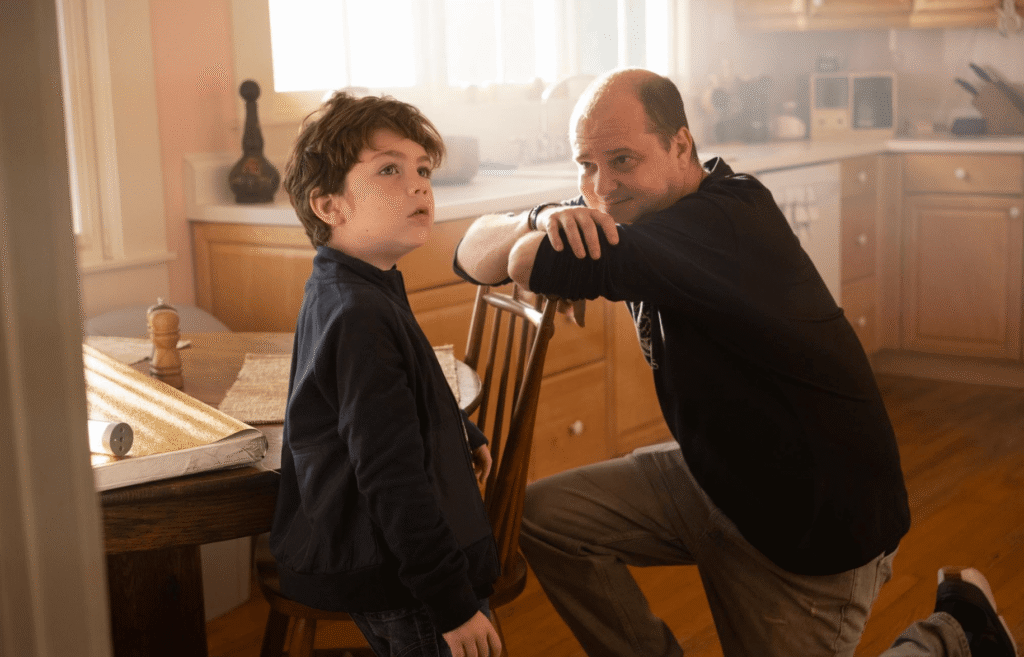


Visually, the film hums with unease. Streetlights flicker like dying stars. Empty buildings breathe with ghostly stillness. Even mundane spaces—a classroom, a hospital corridor—carry the hush of impermanence. Flanagan is a director who understands silence as deeply as sound, and wields it with such flourish.
But he doesn’t drown us in despair. For every image of decay, there’s another of tenderness: Chuck dancing, Chuck laughing, Chuck reaching for connection in fleeting, human ways. Flanagan creates a push-pull rhythm – reminding us that death is always near, but so is wonder.
The result is less a narrative than a meditation. A cinematic elegy. The kind of film you don’t watch so much as absorb, like a poem written in light and shadow.
What it means
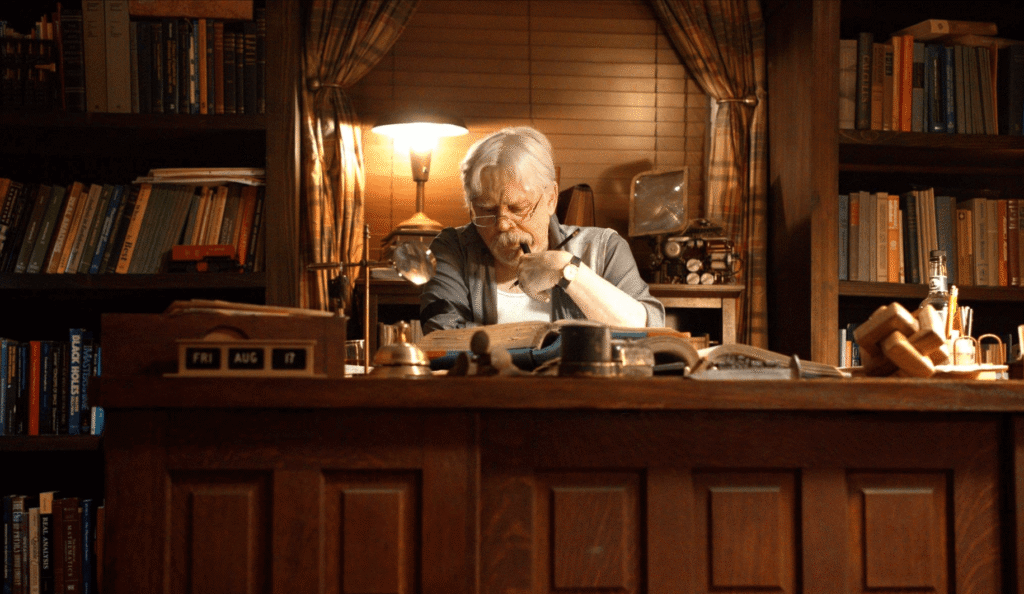


At its core, The Life of Chuck asks a question so simple, it’s almost embarrassing: what makes life worth living? The film never answers directly. Instead, it suggests. It nudges. It lingers. In small kindnesses. In the absurdity of dancing when no one’s watching. In the glow of being remembered, even briefly.
By telling the story in reverse, Flanagan reminds us that life is not a straight line but a loop: beginnings shaped by endings, joy made sharper by grief. The backward flow forces us to value moments we might otherwise dismiss. And in that, it delivers something rare: not horror, not comfort, but clarity.
Final Verdict
The Life of Chuck is a gamble – a strange, slow, defiantly uncommercial film in a marketplace addicted to spectacle. But it is also a revelation. Flanagan crafts one of his most profound works yet, proving he doesn’t need monsters to haunt us. Tom Hiddleston gives a career-defining performance, turning the ordinary into the unforgettable.
It won’t be for everyone. Some will find its structure frustrating, its pace too meditative. But for those willing to lean in, it’s a thunderclap disguised as a whisper. A film that asks you not to escape death, but to notice life.
Rating: 4.5/5 stars

